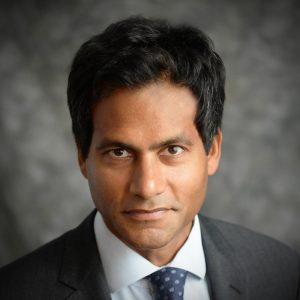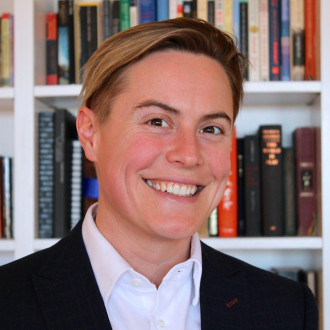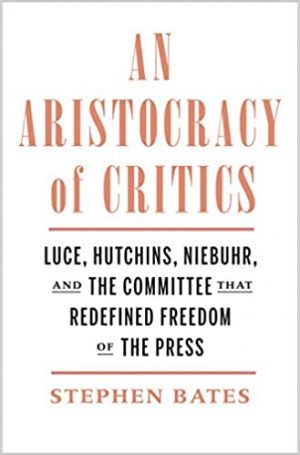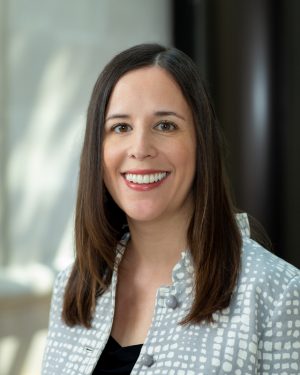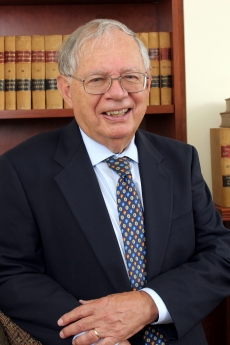First Amendment News 281: Clearview face-recognition controversy continues — privacy v. free speech
Last August we posted a story titled “Floyd Abrams’ march into postmodernity — facial recognition and the First Amendment.” That post began by quoting from a New York Times article:
Clearview AI has hired Floyd Abrams, a top lawyer, to help fight claims that selling its data to law enforcement agencies violates privacy laws. . . . Litigation against the start-up “has the potential of leading to a major decision about the interrelationship between privacy claims and First Amendment defenses in the 21st century,” Mr. Abrams said in a phone interview. He said the underlying legal questions could one day reach the Supreme Court.
At the time of that post, Mr. Abrams told FAN that there “are ten cases in federal court, six in SDNY and four in the ND of Illinois. There is a case in the Vermont State Courts and one in the Illinois state courts by the ACLU.”
Legal complaints
Update: The ever-evolving litigation in ACLU v. Clearview (Cook County, IL)
Amicus brief in support of Defendant Clearview
Last month the First Amendment Clinic at Duke Law School along with Professors Eugene Volokh and Jane Bambauer filed an amicus brief (with Rachel S. Morse as counsel) in support of Defendant-Clearview’s motion to dismiss the ACLU’s civil complaint against it. The case (case ACLU v. Clearview, # 2020-CH-04353) is presently in the Circuit Court of Cook County, Illinois, with Judge Pamela McLean Meyerson presiding. The main arguments offered in the amicus brief are:
- The First Amendment Protects the Collection and Analysis of Publicly Available Information
- The Use/Conduct Distinction is Inapplicable When a Law Targets Information Gathering, Analysis, and Creation
- The Appropriate Standard of Review, in this Case, is Strict Scrutiny
- BIPA is not Well-Tailored to an Important Privacy Interest
- Privacy Laws Must Be Crafted and Interpreted Carefully to Avoid Conflict with the First Amendment
- The First Amendment Protects the Use of Innovative Mechanical Technologies in the Creative Process
Amici briefs in opposition to Defendant Clearview
The Electronic Frontier Foundation also filed an amicus brief but in opposition to Defendant Clearview’s motion to dismiss. EFF’s lawyers on the brief are Adam Schwartz, Andrew Crocker, and Jennifer Lynch. Their main arguments are:
- Faceprinting Enjoys at Least Some First Amendment Protection
- The Application of BIPA to Clearview’s Faceprinting is Subject to Intermediate First Amendment Review
- Illinois has Substantial Interests in Protecting its Residents from Faceprinting
- BIPA’s Consent Requirement, as Applied to Clearview’s Faceprinting, is Narrowly Drawn to Illinois’ Substantial Interests
A number of Law Professors also filed an amicus brief in opposition to Defendant Clearview’s motion to dismiss, this by way the Mandel Legal Aid Clinic at the University of Chicago Law School and the Stanton Foundation First Amendment Clinic at Vanderbilt Law School. Their main arguments are:
- Clearview Conflates its Right to Collect and Use Publicly Available Photographs — a Right BIPA Does Not Affect or Hinder — with its Collection of Biometric Information from those photographs — an Activity for Which BIPA Requires Consent
- To the Extent BIPA Touches on Speech at All, it is a Content-Neutral Time, Place, and Manner Restriction.
- As a Content-Neutral Time, Place, and Manner Restriction, BIPA Withstands Intermediate Scrutiny
The 10 law professors on whose behalf this brief was submitted are:
- Hannah Bloch-Wehba
- Daniel Keats Citron
- Julie E. Cohen
- Mary Anne Franks
- Woodrow Hartzog
- Margot Kaminski
- Genevieve Lakier
- Frank Pasquale
- Neil Richards
- Scott Skinner-Thompson
Jaffer & Krishnan on Clearview, privacy and free speech
What could be one of the most consequential First Amendment cases of the digital age is pending before a court in Illinois and will likely be argued before the end of the year. The case concerns Clearview AI, the technology company that surreptitiously scraped 3 billion images from the internet to feed a facial recognition app it sold to law enforcement agencies. Now confronting multiple lawsuits based on an Illinois privacy law, the company has retained Floyd Abrams, the prominent First Amendment litigator, to argue that its business activities are constitutionally protected. Landing Abrams was a coup for Clearview, but whether anyone else should be celebrating is less clear. A First Amendment that shielded Clearview and other technology companies from reasonable privacy regulation would be bad for privacy, obviously, but it would be bad for free speech, too.
The lawsuits against Clearview are in their early stages, but there does not seem to be any dispute about the important facts. The company assembled a vast database of images scraped from the internet—including from social media networks, news sites, and employment sites—without the consent or knowledge of the people pictured. When a user of Clearview’s app uploads a photo of a face, the app converts the image into a series of coordinates and shows images from the database that share similar coordinates. The app also supplies links to the websites from which the company obtained those similar images. The technology is powerful and fast, which is why federal immigration authorities and hundreds of police departments are already using it.
The people who’ve sued Clearview contend that the company is violating an Illinois privacy law that regulates the collection, use, and dissemination of biometric information. The company argues in defense that its business practices involve the kinds of activities that the First Amendment has been held to protect in the past—collecting publicly available information, analyzing it, and sharing the conclusions of that analysis. In a brief filed in October, it likened its app to a search engine and contended that its judgment about “what information will be most useful to users” is an “editorial” judgment akin to those made by newspapers.
Shador on robocall case
Over at SCOTUSblog, Professor Amanda Shanor offered some informative comments on oral arguments in Facebook, Inc. v. Duguid:
On Tuesday, for the second time this year, the Supreme Court heard oral argument on the federal law that bans robocalls to cellphones. The question this time, in Facebook v. Duguid, is whether the Telephone Consumer Protection Act’s ban on robocalling or robotexting cellphones using an “automatic telephone dialing system” includes using a device that can store and automatically dial telephone numbers without using a “random or sequential number generator.”
At argument, the justices principally appeared frustrated by the statute, if for different reasons. Several justices suggested that the TCPA is out of step with current technology. They seemed to diverge, however, on how that should cut in interpreting the statute, or whether changes in technology or the consequences of their ruling should play a role in their consideration at all.
None of the justices seemed to relish picking between the two interpretations ostensibly before them: one that might create an avalanche of targeted robocalls, or another that might render ordinary smartphone usage a violation of the TCPA. The justices all appeared to agree on one thing, however: They wished the ball was in Congress’ court (or maybe the Federal Communications Commission’s), instead of theirs.
Given the drift of the oral arguments, it is unlikely that the Court will reach the First Amendment question raised in the case.
High Court rules complainant lacks standing in Delaware judicial-elections case
The case is Carney v. Adams. The First Amendment issue raised, though not resolved, was:
Whether the First Amendment invalidates a longstanding state constitutional provision that limits judges affiliated with any one political party to no more than a “bare majority” on the State’s three highest courts, with the other seats reserved for judges affiliated with the “other major political party.”
The Court ruled, in a unanimous (8-0) opinion by Justice Breyer, that because the complainant Adams had “not shown that he was ‘able and ready’ to apply for a judicial vacancy in the imminent future, he has failed to show a ‘personal,’ ‘concrete’ and ‘imminent’ injury necessary for Article III standing.”
→ Amy Howe, “Court throws out challenge to Delaware rules on bipartisanship in judicial elections case”, SCOTUSblog (Dec. 10).
Judge rules Center for Democracy & Technology lacks standing in social media case
Over at the Hollywood Reporter, they’re reporting that:
The Center for Democracy & Technology doesn’t have standing to sue President Donald Trump over his executive order that targets social media sites for the alleged censorship of conservative voices, a D.C. federal judge has ruled.
The CDT in June sued the Trump administration over his May 28 executive order on online censorship. Trump’s order, which he issued shortly after Twitter started flagging his tweets for misinformation, says social media is the modern day equivalent of a public square and it’s “fundamentally un-American and anti-democratic” to let powerful social media companies “censor” opinions.
→ Read the Center for Democracy & Technology complaint.
Commentary: Harmon on Trump and Section 230
President Trump’s recent threat to “unequivocally VETO” the National Defense Authorization Act (NDAA) if it doesn’t include a repeal of Section 230 may represent the final attack on online free speech of his presidency, but it’s certainly not the first. The NDAA is one of the “must-pass” bills that Congress passes every year, and it’s absurd that Trump is using it as his at-the-buzzer shot to try to kill the most important law protecting free speech online. Congress must reject Trump’s march against Section 230 once and for all. . . .
Section 230 is not, as Trump and other politicians have suggested, a handout to today’s dominant Internet companies. It protects all of us. If you’ve ever forwarded an email, Section 230 protected you: if a court found that email defamatory, Section 230 would guarantee that you can’t be held liable for it; only the author can.
Two myths about Section 230 have developed in recent years and clouded today’s debates about the law. One says that Section 230 somehow requires online services to be “neutral public forums”: that if they show “bias” in their decisions about what material to show or hide from users, they lose their liability shield under Section 230 (this myth drives today’s deeply misguided “platform vs. publisher” rhetoric). The other myth is that if Section 230 were repealed, online platforms would suddenly turn into “neutral” forums, doing nothing to remove or promote certain users’ speech. Both myths ignore that Section 230 isn’t what protects platforms’ right to reflect any editorial viewpoint in how it moderates users’ speech—the First Amendment to the Constitution is. The First Amendment protects platforms’ right to moderate and curate users’ speech to reflect their views, and Section 230 additionally protects them from certain types of liability for their users’ speech. It’s not one or the other; it’s both.
Strip clubs, churches, theaters . . . and the First Amendment
Recently published book on freedom of press and Hutchins Commission
The story behind the 1940s Commission on Freedom of the Press—groundbreaking then, timelier than ever now
“A well-constructed, timely study, clearly relevant to current debates.”—Kirkus, starred review
In 1943, Time Inc. editor-in-chief Henry R. Luce sponsored the greatest collaboration of intellectuals in the twentieth century. He and University of Chicago president Robert Maynard Hutchins summoned the theologian Reinhold Niebuhr, the Pulitzer-winning poet Archibald MacLeish, and ten other preeminent thinkers to join the Commission on Freedom of the Press.
They spent three years wrestling with subjects that are as pertinent as ever: partisan media and distorted news, activists who silence rather than rebut their opponents, conspiracy theories spread by shadowy groups, and the survivability of American democracy in a post-truth age. The report that emerged, A Free and Responsible Press, is a classic, but many of the commission’s sharpest insights never made it into print.
Journalist and First Amendment scholar Stephen Bates reveals how these towering intellects debated some of the most vital questions of their time—and reached conclusions urgently relevant today.
Article on public accommodations and free speech
Thirty-five years ago, in Roberts v. Jaycees, the Supreme Court instructed that “unique evils” inhered in discrimination in public commerce. In this essay, I then sketch the import of the unique evils of public accommodation discrimination for free speech. I argue that this arena manifests unified conventions. By inviting the general public, public accommodations generate expectations of service, expectations always realized by the in-group—often defined by race, religion, and gender—and sometimes denied to minorities. Unlike employment, housing, and other spheres of antidiscrimination, public accommodations operate according to accepted conventions of non-selectivity. The public expects businesses to deliver goods and services on a first-come, first-served basis, to charge the same prices, and to treat people with respect for their status as consumers.
I show that social expectations of public accommodations indicate an overlooked asymmetry in the communicative potential of service and denial. Because of the conventions of the public marketplace, a business communicates little, if anything, when it provides a good or service to any particular customer. It signals no approval of the person or the use of the goods by its service. By contrast, denial of service powerfully expresses that a person (or group) does not merit status as a consumer. The message conveyed by breaking uniform conventions of service does not depend on the artistic or bespoke nature of the product sold or the celebration of any particular event. Free speech claims built around denial of service cannot be so cabined. Instead, they risk the foundations of a consumer market that operates with an ideal of neutrality toward identity traits and aspires to frictionless transactions and movement.
Forthcoming book on Hitchcock and censorship
Throughout his career, Alfred Hitchcock had to deal with a wide variety of censors attuned to the slightest suggestion of sexual innuendo, undue violence, toilet humor, religious disrespect, and all forms of indecency, real or imagined. From 1934 to 1968, the Motion Picture Production Code Office controlled the content and final cut on all films made and distributed in the United States. Code officials protected sensitive ears from standard four-letter words, as well as a few five-letter words like tramp and six-letter words like cripes. They also scrubbed “excessively lustful” kissing from the screen and ensured that no criminal went unpunished.
During their review of Hitchcock’s films, the censors demanded an average of 22.5 changes, ranging from the mundane to the mind-boggling, on each of his American films. Code reviewers dictated the ending of Rebecca (1940), absolved Cary Grant of guilt in Suspicion (1941), edited Cole Porter’s lyrics in Stage Fright (1950), decided which shades should be drawn in Rear Window (1954), and shortened the shower scene in Psycho (1960).
In Hitchcock and the Censors, author John Billheimer traces the forces that led to the Production Code and describes Hitchcock’s interactions with code officials on a film-by-film basis as he fought to protect his creations, bargaining with code reviewers and sidestepping censorship to produce a lifetime of memorable films. Despite the often-arbitrary decisions of the code board, Hitchcock still managed to push the boundaries of sex and violence permitted in films by charming―and occasionally tricking―the censors and by swapping off bits of dialogue, plot points, and individual shots (some of which had been deliberately inserted as trading chips) to protect cherished scenes and images. By examining Hitchcock’s priorities in dealing with the censors, this work highlights the director’s theories of suspense as well as his magician-like touch when negotiating with code officials.
New scholarly article: Barron on hate speech and the internet
This article deals with the problem of hate speech on the Internet. The very mode of the Internet is access and the Internet’s ready access for ideas is in many ways its most attractive feature. Indeed the Internet is a harbor for all kinds of speech, including hate speech. But as recent events in Charleston, Pittsburgh and El Paso demonstrate, hate speech, such as white supremacist websites, has lethal consequences.
The interactivity of a social media platform, the camaraderie that it engenders, the rage that it fosters, provides a means of radicalization unknown to the more traditional media. A federal statute, 47 U.S.C. Sec. 230(c)(1) plays a significant role here. The theme of this provision is to free online service providers from whatever harmful effects that flow from the content they transmit. Furthermore, under First Amendment law, hate speech is generally speaking, protected speech. The Supreme Court has dealt with hate speech in non-internet contexts. This case law is analyzed in determining what guidelines it provides for the new phenomenon of hate speech on the Internet. In addition, the article suggests a possible amendment to Sec. 230 (c)(1).
So to Speak Podcast discussion with National Review editor
In this episode of So to Speak: The Free Speech Podcast, host Nico Perrino is joined by the editor of NationalReview.com, Charles C.W. Cooke, to discuss free speech philosophy, Christopher Hitchens, the October murder of a school teacher in France, and recent attacks on Section 230 of the Communications Decency Act.
YouTube: Flemming Rose on free speech
What’s the climate today for freedom of speech, specifically on the topic of Islam, in Europe? What can we make of the response of European governments?To understand the situation, I talked to Flemming Rose, a journalist and author of The Tyranny of Silence. In 2005, he was an editor at the Danish newspaper Jyllands-Posten when it commissioned and later published cartoons on the subject of Islam to assess the seeming climate of self-censorship. That decision led to boycotts, deadly protests, and a global crisis. Al Qaeda put Mr. Rose on a hit list, and today when he leaves home, he must be accompanied by bodyguards.We talked about the “cartoons crisis,” which has become shrouded in misconceptions, the worldwide protests and boycotts that ensued, and the massacre at Charlie Hebdo (it had republished the Danish cartoons in support of freedom of speech). Following that attack, millions flocked to the streets of Paris to show their solidarity with the murdered journalists, declaring on banners, “Je Suis Charlie” (“I am Charlie”). What became of that visceral outpouring of support in the years since?
In the news
- “New Report Shows Acute Rise in Arrests of Journalists in the U.S.,” First Amendment Watch (Dec. 14)
- Phil Matier, “First Amendment takes a beating at S.F. Board of Supervisors — until they backtrack,” San Francisco Chronicle (Dec. 13)
- Gene Policinski, “Mr. Biden, how about a new push for 1st Amendment freedoms?,” Salina Post (Dec. 12)
- “To Help ICE Detainees Speak Out, a First Amendment Clinic Asked a Court to Keep Their Testimonies Secret,” First Amendment Watch (Dec. 11)
- Nicky Robertson, “Judge rules Voice of America head curbed First Amendment rights of its journalists,” CNN Business (Nov. 21)
- Tyler McCarthy, “Dave Chappelle defends freedom of speech from ‘cancel culture’: ‘First Amendment is first for a reason’,” Fox News (Oct. 29)
2020-2021 SCOTUS term: Free expression & related cases
Cases decided
- Mckesson v. Doe (per curium, 7-1 with Thomas, J., dissenting) (judgment vacated and remanded to 5th Cir.)
Cases argued
Cert. granted
Pending petitions
Cert. denied
First Amendment-related
Last scheduled FAN
Published at Wed, 16 Dec 2020 21:08:23 +0000


